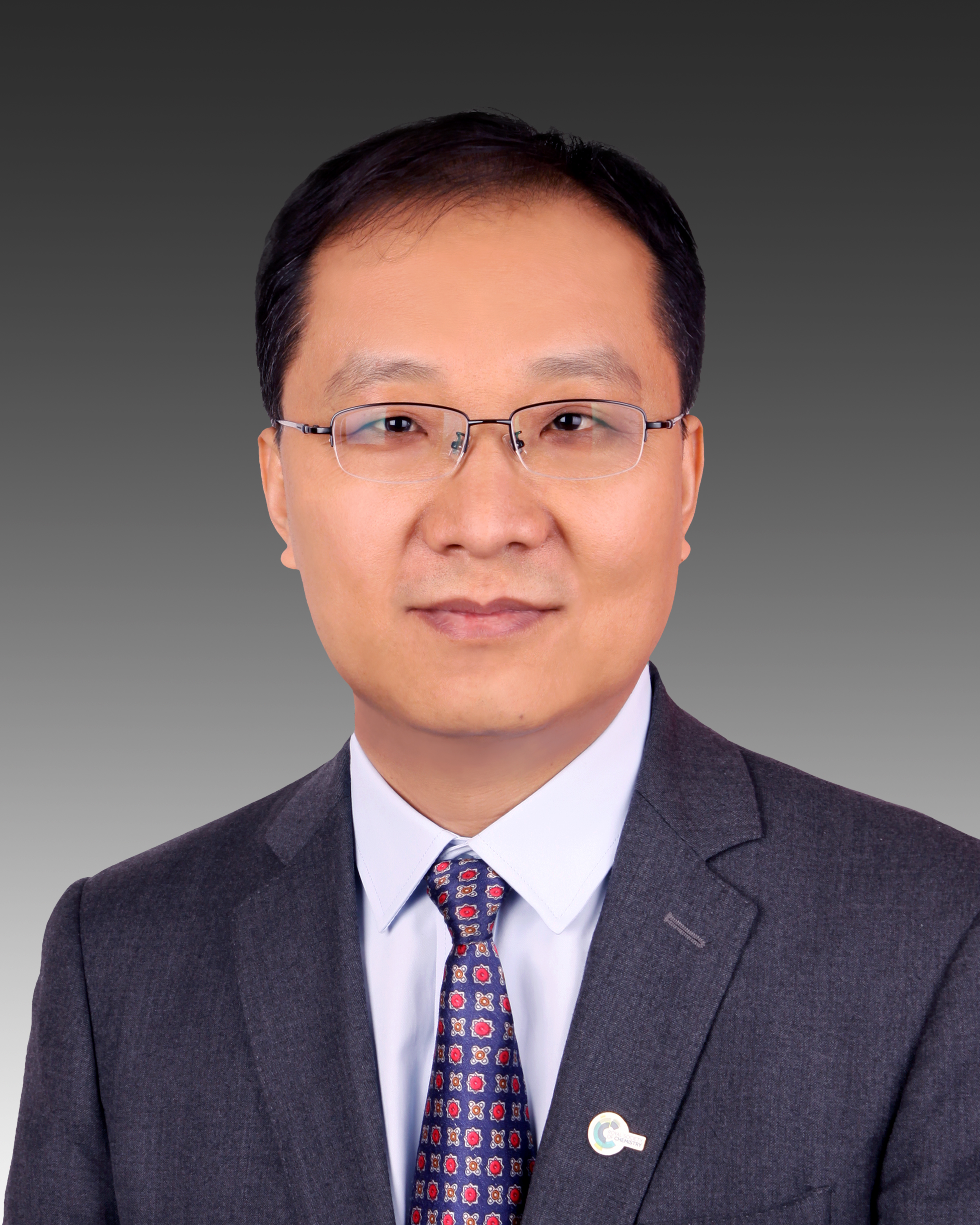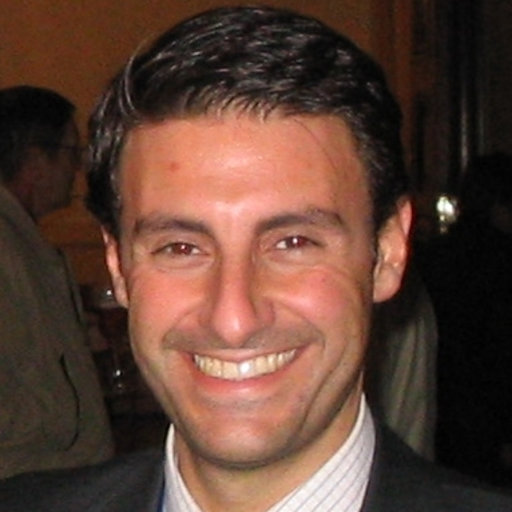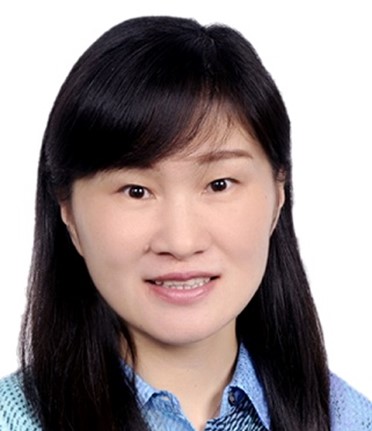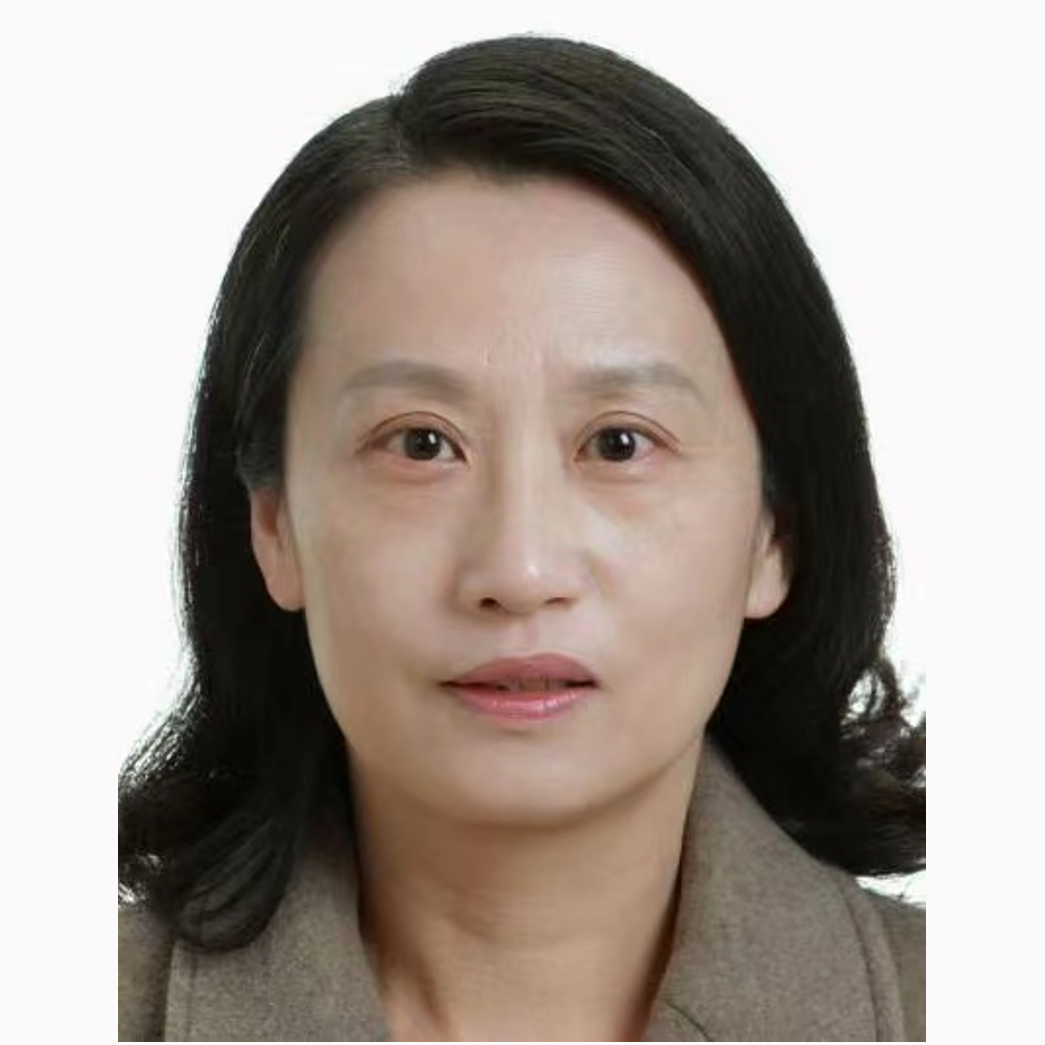Fellow


Professor Yao-Tung Lin is a globally recognized expert in environmental engineering, with over three decades of academic and professional experience spanning carbon sequestration, high-value material innovation from agricultural and fishery waste, and advanced synchrotron-based characterization. As a principal investigator and lead scientist, Professor Lin has pioneered novel methods to transform waste into multifunctional materials with antimicrobial, antioxidant, and environmental applications. His research integrates nanotechnology, photocatalysis, and AI-driven material sensing, with special emphasis on chromatic pH-responsive indicators for wound diagnostics and food freshness. In his national leadership role, Professor Lin serves as Director of the Taiwan National Science and Technology Office for Net-Zero Emission under the Executive Yuan (Taiwan’s Cabinet). He is responsible for developing national strategies, formulating R&D budgets, and steering technological innovation to meet Taiwan’s 2050 Net-Zero goals. He is also renowned for pioneering work using synchrotron X-ray imaging to visualize the 3D inactivation process of bacteria and intracellular stress responses under environmental stimuli. Professor Lin’s integrative leadership connects science, policy, and sustainability toward a circular, carbon-neutral future.

Peng-Cheng Ma graduated with a BSc in Chemistry and an MSc in Polymer Chemistry and Physics from Lanzhou University, China. He obtained a PhD in Mechanical Engineering from The Hong Kong University of Science and Technology. From 2010 to 2012, he worked at the Leibniz Institute of Polymer Research Dresden in Germany. Professor Ma joined the Xinjiang Technical Institute of Physics and Chemistry- Chinese Academy of Sciences (XTIPC-CAS) in 2012. He is a professor of XTIPC-CAS now and holds a concurrent professorship at the University of Chinese Academy of Sciences. He has directed the Laboratory of Environmental Science and Technology at XTIPC-CAS since 2018.
The research of Professor Ma is concentrated on the materials for energy harvesting and utilization, and separation science and technology. He authored 2 monographs, published more than 120 papers with a total citation of 13500 (Google Scholar), and has been ranked as one of the World’s Top 2% Scientists by Stanford University since 2020. His other achievements include the Humboldt Research Fellowship, Awardee of the National High-level Talent Program in China, Fellow of the Royal Society of Chemistry (FRSC, UK), Excellent Young Scientist by the Chinese Society of Composite Materials, Overseas Chinese Returnees Contribution Award (First Class), Outstanding Achievement Award from the International Congress on Separation and Purification Technology and IACC, and so on.
Besides fundamental research, Professor Ma is enthusiastic in transferring knowledge to technology for various applications. He holds 25 Chinese patents, and 8 of them have been transferred/licensed to the industry. As an inventor of the Aggregation-Induced Separation (AIS) Technique, he pioneered research on this concept/methodology for separating various oil-water mixtures produced in the energy/petroleum industries. He is a co-founder and chief scientist of CAS-Realnm, a national hi-tech company working on separation science and technology by taking carbon emission reduction as the cooperate mission.

Professor Ramesh L. Gardas is a faculty member in the Department of Chemistry at the Indian Institute of Technology Madras, where he has been engaged in teaching and research since 2010. With over 25 years of research and 15 years of teaching experience, he specializes in chemical thermodynamics, phase equilibria, and the development of non-conventional, environmentally benign solvents such as ionic liquids and deep eutectic solvents.
Prof. Gardas has coauthored over 250 peer-reviewed publications, four patents, and twelve book chapters, received more than 10,300 citations (h-index: 53). His work has contributed over 18,500 thermodynamic data points to the NIST Standard Reference Database. He is internationally recognized for the "Gardas and Coutinho" model, used extensively for density prediction of ionic liquids.
In alignment with IACC’s mission, Prof. Gardas’s recent research focuses on next-generation solvents for CO₂ capture, particularly protic and guanidinium-based ionic liquids that are tunable, thermally stable, and low in volatility. His group has developed innovative materials and encapsulation techniques to improve CO₂ absorption capacity, kinetics, and recyclability - paving the way for scalable, process-ready solutions.
A Fellow of the Royal Society of Chemistry (UK), Associate Editor of the Journal of Chemical & Engineering Data (ACS), and recipient of numerous awards, Prof. Gardas continues to mentor young researchers and contribute significantly to global carbon capture research and public awareness efforts.

Since 2000, Dr. Yu has been dedicated to the development and demonstration of advanced technologies for the capture and utilization of greenhouse gases. He is internationally recognised as a leading authority in carbon capture and utilisation (CCU), with a distinguished record of scientific excellence, innovation, and real-world impact.
Dr. Yu led a collaborative team in developing an advanced aqueous ammonia-based carbon capture technology, which was successfully demonstrated at a coal-fired power plant in Australia. Building on his CCU expertise and strong industrial connections, Dr. Yu led a team of leading experts from six organisations—Adbri, the Cement Industry Federation, Calix, UNO, the University of Adelaide, and CSIRO—to develop the Carbon Capture, Utilisation and Storage Technology Roadmap for the Production of Low Emissions Cement and Lime in Australia.
Applying multidisciplinary expertise and creative thinking, Dr. Yu conceived novel concepts, developed new capabilities, and established and led collaborative efforts that underpin the development of two innovative technologies: Integrated Capture and Electrolysis and Integrated Absorption and Mineralisation.
Dr. Yu has secured over AUD $20 million in funding from various sources, including the Australian Government, national and international industry partners, and the Australian Research Council. He has published over 150 papers—with more than 7,000 citations according to Google Scholar—and authored more than 20 industrial and commercial reports.

Professor Stefano Cimino has been Research Director of the National Research Council in Italy (CNR) since 2021 working at the institute for Science and Technology for Sustainable Energy and Mobility (STEMS, Napoli, Italy). He graduated cum laude in Chemical Engineering in 1997 at the University of Napoli Federico II where he earned a PhD in Chemical Engineering in 2001. Since 2001 he has joined the CNR initially working as a researcher at the Institute for Research on Combustion in Napoli in the field of heterogeneous catalytic processes for environmental protection and energy production. In 2006 he was visiting researcher at KTH Stockholm (Sweden). In 2017 he qualified as Full Professor in Chemical Engineering. From 2016 to 2021 he was a member of the Advisory Board Italian Section of the Combustion Institute. He is Member of the Editorial Board of the journals: Catalysts (2018-) and Carbon Capture Science & Technology (2023-)
Throughout his career, he has worked on several research areas including:
· CO2 capture and Utilization & Power to Gas (Methanation)
· Catalytic chemical looping (combustion, partial oxidation, integrated CO2 capture-conversion)
· Catalytic abatement of gaseous pollutants (DeNOx, DOC, TWC, LNT, Hg, VOC, H2S)
· Catalytic combustion or partial oxidation of light hydrocarbons
· H2 production & purification
· Olefins production by oxidative dehydrogenation at short contact time
· Poisoning, deactivation and regeneration of heterogeneous catalysts
· Preparation and characterization of heterogeneous catalysts
· Structured and multifunctional catalytic reactors
He has authored 94 publications in ISI-classified journals and he has filed 7 international patents licensed to industrial partners. In 2018 he edited the volume entitled “Catalyst Deactivation, Poisoning and Regeneration”, published by MDPI.


Dr. Rezaei is Professor of Chemical Engineering in the Chemical, Environmental and Materials Engineering Department at University of Miami (UM). Prior to joining UM, she held Linda and Bipin Doshi Endowed Professor of Chemical Engineering at Missouri S&T. She obtained her PhD degrees in Chemical Engineering from Monash University in Australia and LTU in Sweden in 2011. She worked as a postdoctoral fellow at Georgia Tech. Her research focus broadly lies at the interface of chemical, materials science and environmental engineering, and the overall goal of her research group is development of advanced materials and processes for separation, purification, and storage applications. She is the author of over 150 peer-reviewed journal articles and has received several awards including 2024 ACS ENFL Emerging Researcher, 2021 ACS Women Chemists Committee (WCC) Rising Star Award; 2020 UM System president’s Award for Career Excellence-Early Career; 2018 Energy & Fuels Award for Excellence in Publication; as well as 2021 and 2018 Missouri S&T Faculty Research Award. She is the Associate Editor of ACS Energy & Fuels journal and editorial member of Journal of CO2 Utilization and Frontiers in Energy Research.


Dr. Bishnupada Mandal is currently a full Professor in the Department of Chemical Engineering at the Indian Institute of Technology Guwahati. He has more than 20 years of teaching and research experience in IIT Guwahati. He was Visiting Research Professor in The Department of Chemical & Biomolecular Engineering at The Ohio State Engineering, Columbus, Ohio, USA during May-July 2017. He had been a recipient of the prestigious BOYSCAST fellow award of Department of Science and Technology (DST) Govt. of India and spent one year (2006-2007) as a visiting scientist at The Ohio State University, Columbus, USA. His research interest includes CO2 capture by absorption, adsorption, and membrane based processes from flue gas, natural gas and syngas; wastewater treatment using bio-sorption and enzymatic processes; Interfacial reactions; and modeling and simulation of separation processes, organic solvent nanofiltration membrane & fuel cell. He has guided 19 PhD and several MTech as well as BTech students. Currently he is involved in guidance of 8 PhD students. He has published two monographs (Lap-Lambert Academic Publishing, Germany, 2010), five book chapters, 110 research papers in reputed international journals and more than 150 papers in referred conference proceedings. He has over 4900 citations and h-index is 36 (Google Scholar). He has served as a Member (Senate Nominee) of the Board of Governor (BOG), IIT Guwahati. He has served as the Editorial Board Member of Heliyon (Elsevier), & American Journal of Modern Chemical Engineering (Columbia International Publishing) and Guest Editor for Indian Chemical Engineer. He has served as reviewer of more than 50 ACS, Elsevier, Wiley, Springer and RSC journals. He was the Organizing Secretary of 68th Annual Session of Indian Institute of Chemical Engineers (CHEMCON 2015). He has served as Chairman and Honorary Regional Secretary, Guwahati Regional Centre (GRC) of IIChE. He has server as elected Executive Council Member of IIChE for the years 2016-2019 and reelected for the years 2022-2024. He is involved in several research/consultancy projects. He has served Oil India Limited (OIL), Duliajan, National Thermal Power Corporation Limited (NTPCL), New Delhi, GAIL (India) Limited and Bharat Heavy Electricals Limited (BHEL), Bangalore as a consultant.
Award and Recognitions : | · Herdillia award for Excellence in Basic Research in Chem. Eng. by IIChE (2020) · Dr. A. V. Rama Rao award for guiding Best PhD thesis in Chem. Eng. by IIChE (2020 & 2021) · Fellow of Royal Society of Chemistry (FRSC), London (UK) (2020) · Fellow of Institute of Engineers (FIE), India · Fellow of Indian Institute of Chemical Engineers (IIChE) · Fellow of Indian Chemical Society (ICE) · BOYSCAST fellow, DST, Govt. of India
|



Dr. Luciana Porto de Souza Vandenberghe is Full Professor of the Department of Bioprocess Engineering and Biotechnology, Federal University of Paraná, Curitiba, Brazil. Dr Vandenberghe obtained her PhD degree in Génie de Procédés Industriels - Biotechnologie from Université de Technologie de Compiègne (2000), France. Her areas of interest include Bioprocess Engineering & Biotechnology and Industrial Microbiology, with focus on valorization of solid and liquid agro-industrial products through submerged and solid-state fermentation for biomolecules production including biofuels, industrial enzymes, organic acids, bioplastics and plant growth hormones. She has published 142 papers, 3 books, 63 book chapters and 25 patents. She is Associate Editor of Bioresource Technology (Elsevier) and Carbon Capture Science and Technology and Editorial Board Member of Biotechnology Research and Innovation Journal (Brazilian Biotechnology Association). She is in the top 2% of Brazilian researchers according to AD Scientific Index in 2022.

Dr Chew Tin Lee received her PhD in Engineering from the University of Cambridge, U.K in 2004. She currently serves as the Professor in the School of Chemical & Energy Engineering, University of Technology Malaysia (UTM), Malaysia. She is passionate about promoting sustainable organic waste management through the 3R campaign, biomass to energy, and composting. She published over 170 international scientific papers. Lee serves various editorial roles, including in the Journal of Cleaner Production(2018-2022) , Energy, and Chemical Engineering Transactions. She was the Director of Global Education at UTM (2008-2016). She is the Co-chair/Director of the International Conference on Low Carbon in Asia (www.iclcaconf.com); she runs international summer programs to promote sustainability. She was the Visiting Scholar at the University of Politechnica Madrid (2015) and Shanghai Jiao Tong University (2019). She is a chartered engineer of IChemE U.K. and a member of the Institution of Engineers Malaysia.
E-mail: ctlee@utm.my
Research areas: Waste management, Circular Economy, Greenhouse gases inventory,

Ben Bin Xu (FRSC, FIMMM, FRSA, FSCI) is a Professor of Materials and Mechanics in the Department of Mechanical and Construction Engineering at Northumbria University, UK. Ben obtained his Ph.D in Mechanical Engineering (2011) at Heriot-Watt University in Edinburgh, then moved to the University of Massachusetts, Amherst (US, 2011-2013) to work as postdoc. Since joining Northumbria in 2013, Ben has established a multidisciplinary research group with diverse interests in energy materials and technology, sustainable engineering, materials chemistry, responsive materials/surface, soft matter, mechanics and micro-engineering. Ben chairs the Materials Characterisation & Properties Group in the Institute of Materials, Mining and Minerals (IoM3) and the Composites Division in the American Institute of Chemical Engineers (AICHE, US). He holds the title of visiting professorship in 10+ universities globally, including UCLA (US), University of Alberta (CA), The University of Sydney (AU), etc. He has published 180+ peer reviewed journal articles, 8 books (incl. chapters), 6 patents, given 100+ invited talks and won multiple awards (2016 Young investigator award from the International Polymer Networks Group, etc.). BX is a council member for RSC Materials Chemistry Division, advisory council member for IoM3, etc.

Dr Jun Hu is a professor at School of Chemistry and Molecular Engineering, ECUST. Her research interests are to combine experimental and computational chemistry to investigate the adsorptive and catalytical properties of complex matters, and to explore applications in Carbon Capture and Utilization (CCU). Early in 2008, Jun Hu received her first funding of Adsorptive CO2 Capture from National Natural Science Foundation of China (NSFC). From then on, she was involved in many different research projects, mainly focusing on CCU, such as the National High Technology Research and Development Program of China (‘863’), and the National Basic Research Program of China (‘973’), EU FP7. She has published more than 130 journal papers, such as Energ. Environ. Sci., Nat. Comm., Angew. Chem., Adv. Fun. Mater., AIChE J. Chem. Eng. J.. Currently, she is particularly interested in CO2 capture and in-situ conversion (iCCC) from high-temperature manufactories and have received financial supports from the Original Exploration Program of NSFC and SINOPEC, and will develop a low energy consumption iCCC demonstration in 2024.

Dr Hui Jin is a professor of the State Key Laboratory of Multiphase Flow in Power Engineering of the School of Energy and Power Engineering, Xi'an Jiaotong University, China. He received Bachelor of Science (2005) from Harbin Institute of Technology, China. He received PhD (2011) from Xi'an Jiaotong University, China. He is the winner of the National Science Fund for Distinguished Young Scholars in National Natural Science Foundation of China (2018). His research fields focus on a poly-generation technology for hydrogen production, power generation and heat supply based on coal gasification in supercritical water and relative multiphase thermal physical and chemical theory.
He has published more than 200 paper with more than 6300 citations, 15 papers were indexed as ESI paper, and 3 papers were indexed as hot papers. He also has public or authorized 36 patents. He was invited to be the keynote speaker of the international conference 19 times. He was awarded by science and technology award in Shaanxi province (ranking 3rd, 2014), the top 10 scientific and technological progress of Chinese universities (ranking 3rd, 2017), " Chung-Hua Wu Outstanding Student (2012), and Outstanding Young Scholar Award (2022)" issued by the Chinese Society of Engineering Thermophsics, leader of Youth Innovative Research Team of Shaanxi Province (2022), and Particuology Young Scholar Award (2022) issue by Chinese Society of Particuology.

Dr. Gaohong He is a full professor in Dalian University of Technology, China. She was a winner of Science Fund for Outstanding Young Scholars of China in 2011 and appointed as a professor of Changjiang Scholar by the Ministry of Education of the People's Republic of China in 2012. Her expertise includes membrane preparation for gas separation and ion transfer processes (such as fuel cell and redox flow battery), membrane processes, and materials for energy storage. Her research has been obtained the continuous support of National Natural Science Foundation of China, Ministry of Science and Technology, and petrochemical enterprises. She authored 400+ publications in peer reviewed journals. She won twice the National Science and Technology Progress Award (second prize) of China's State Council in 2010 and 2018, as well as Gold medal with the congratulations of the jury in 45th International Exhibition of Inventions of Geneva in 2017. She was a research associate in Hong Kong University of Science & Technology (1997-1998), an adjunct professor in Chinese Academy of Science (1995-2001), a Croucher Foundation Fellow in Hong Kong University of Science & Technology (2001-2002), a senior visiting professor in University of Technology of Compiègne, France (2005) and University of California, Riverside, USA (2006-2007), Georgia Institute of Technology, USA (2011) and The University of Texas at Austin, USA (2018).

- Professor Lam holds a PhD in Chemical Engineering from Cambridge University, and is currently a Professor and Director of International Centre of Universiti Malaysia Terengganu.
- He serves as Editor of Carbon Capture Science & Technology, Environmental Pollution and Journal of Industrial and Engineering Chemistry, Associate Editor for Reviews of Environmental Contamination and Toxicology, Environmental Advances, Environmental Geochemistry and Health, Frontiers in Energy Research, and Energy & Environment.
- He leads a research group working mainly on Chemical & Environmental Engineering, focusing on Waste and Biomass Utilization, Waste and Wastewater Treatment, Green Technology, and Pollution Mitigation. He is active in research on the application of thermochemical processes such as pyrolysis and microwave heating in transforming waste and biomass into green energy and products applicable to industry for carbon capture (e.g. CO2 absorption), carbon emission reduction (e.g. gasification/ pyrolysis of hydrocarbon feedstock, CO2 utilization and conversion), and environmental protection.
- He has secured 30 research grants, file patent and commercialize inventions from his research team, and publishing over 440 articles in journals, some of which are published in journals such as Lancet, Nature, Science, and Progress in Energy and Combustion Science, and Renewable and Sustainable Energy Reviews.

Shujuan Wang, professor in the Department of Energy and Power Engineering, Tsinghua University. She got her Ph.D in Tsinghua University in 2000. Her main research work includes CO2 capture, utilization and storage, renewable energy, clean coal technology, and ecological restoration. She was the CDM CCS working group member of UNFCCC, Director of Beijing Engineering Research Center for Ecological Restoration and Carbon Fixation of Saline-Alkali and Desert Land, member of Carbon Neutrality Council of Beijing. The related research projects undertaken by her are from the National Science and Technology Support Program, National Natural Science Foundation, and also EU FP6, FP7, H2020. She has published more than 100 papers. Her main research achievements were awarded the first prize of Science & Technology Award for Environmental Protection, and also second prize of Huaxia Construction Science & Technology Award. She was also awarded National Green Medal in 1998.
